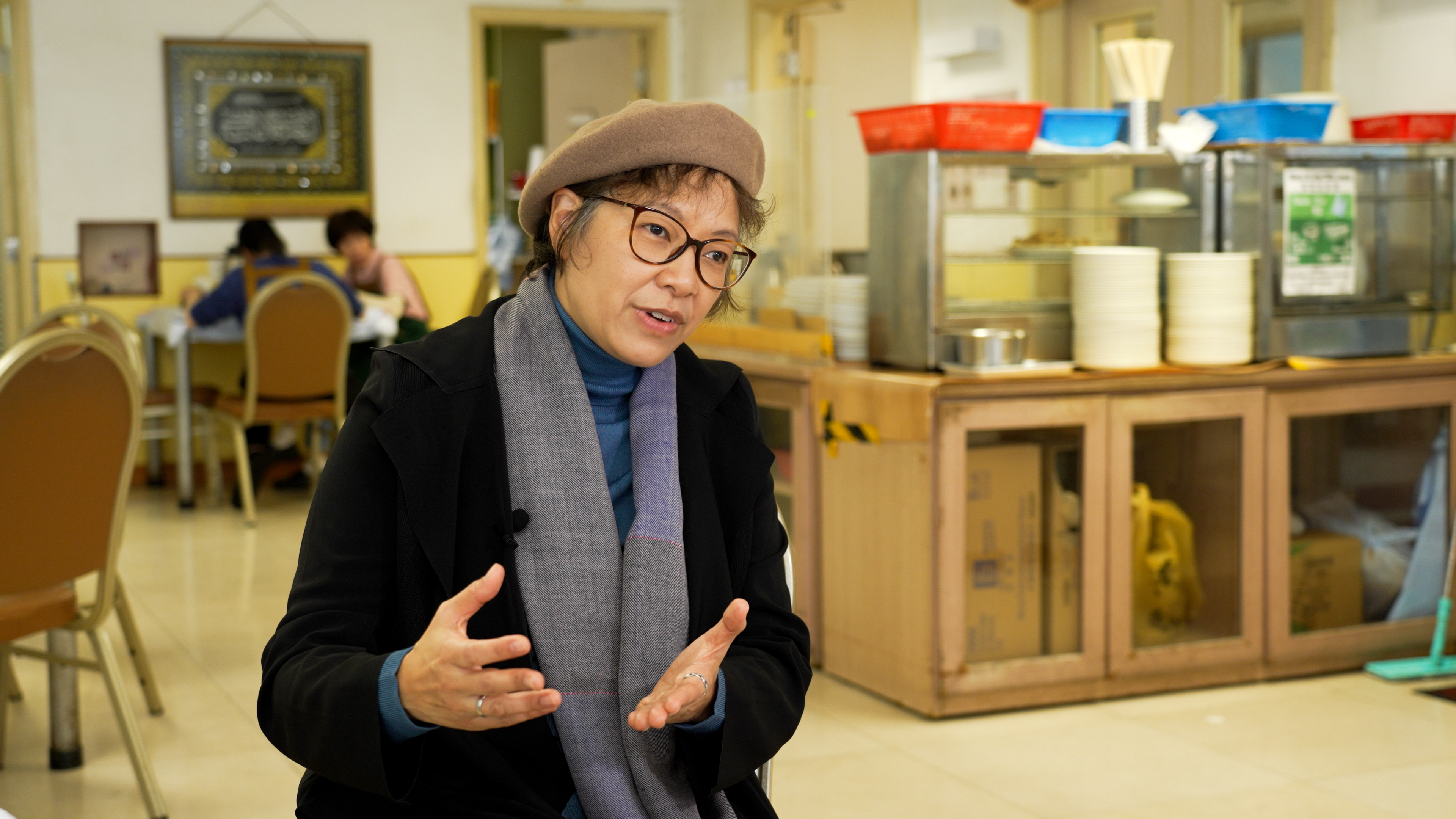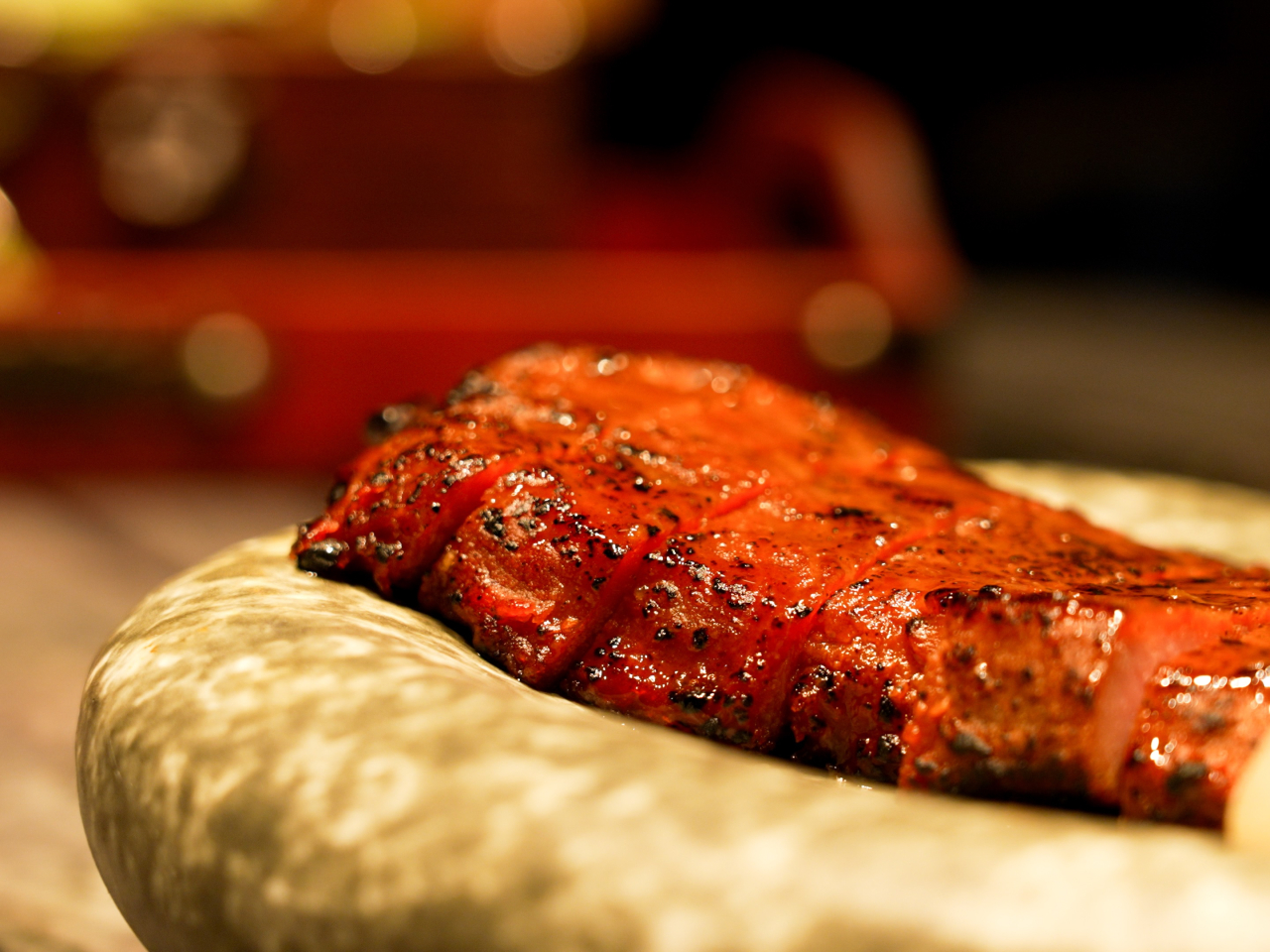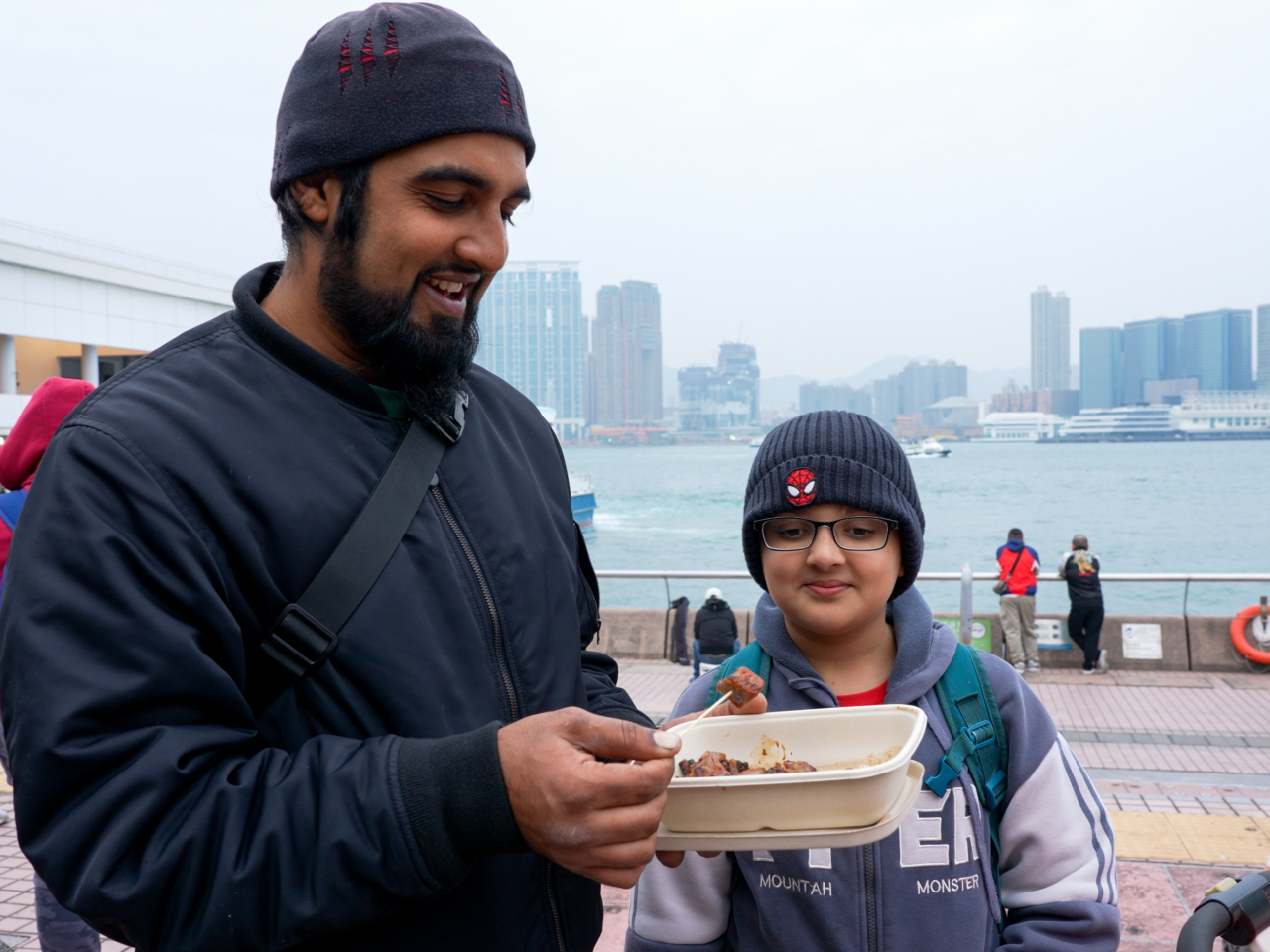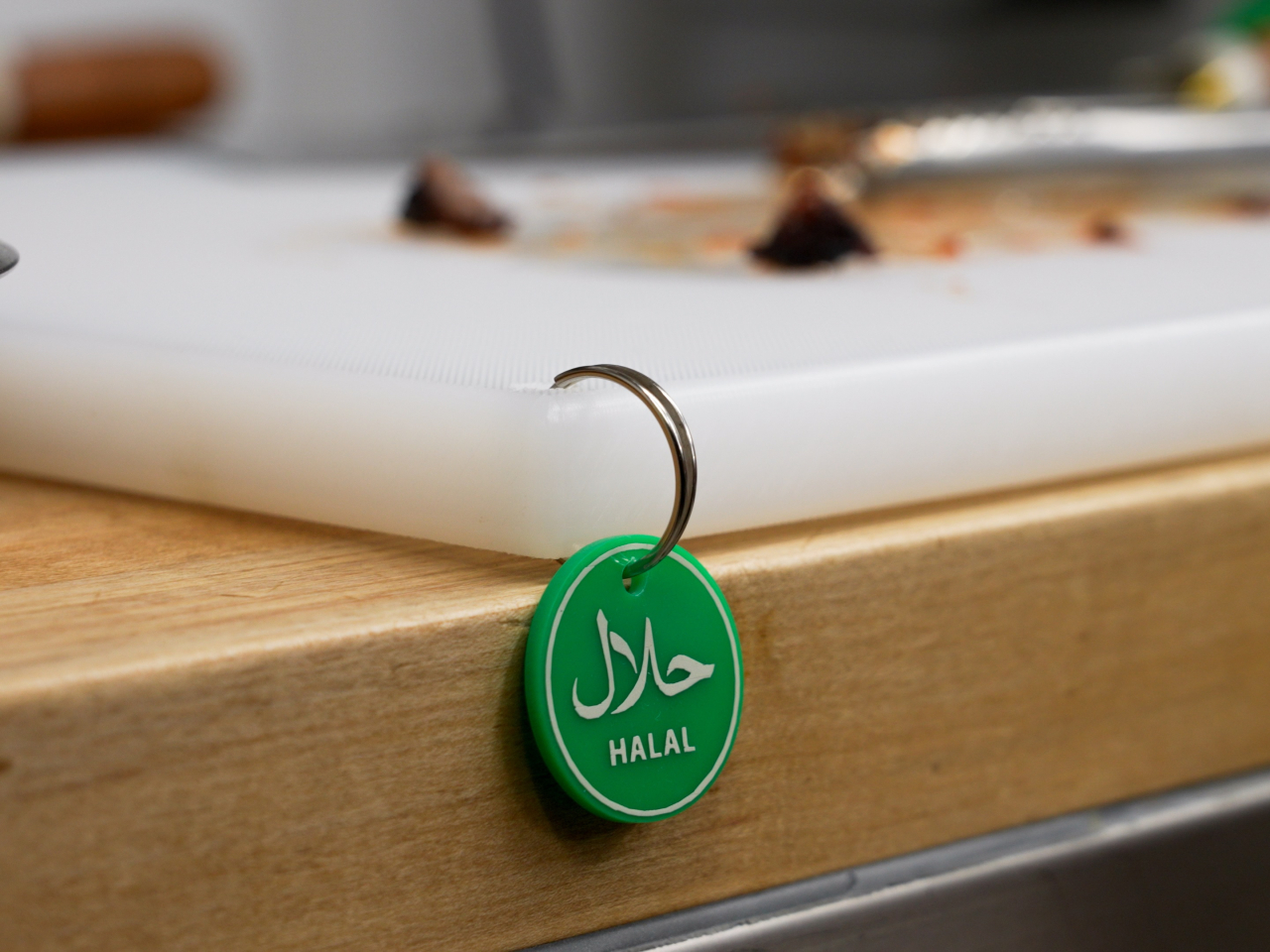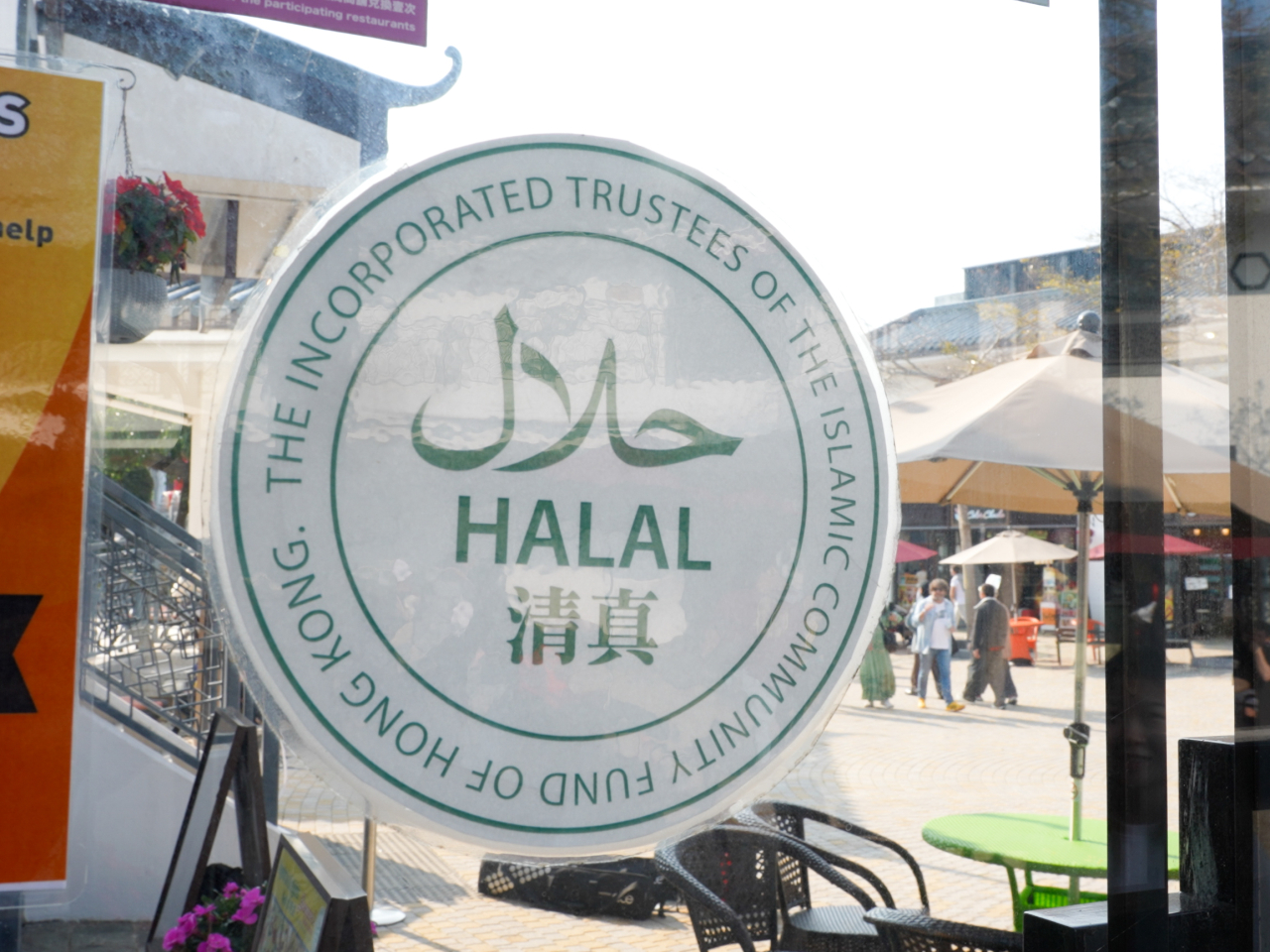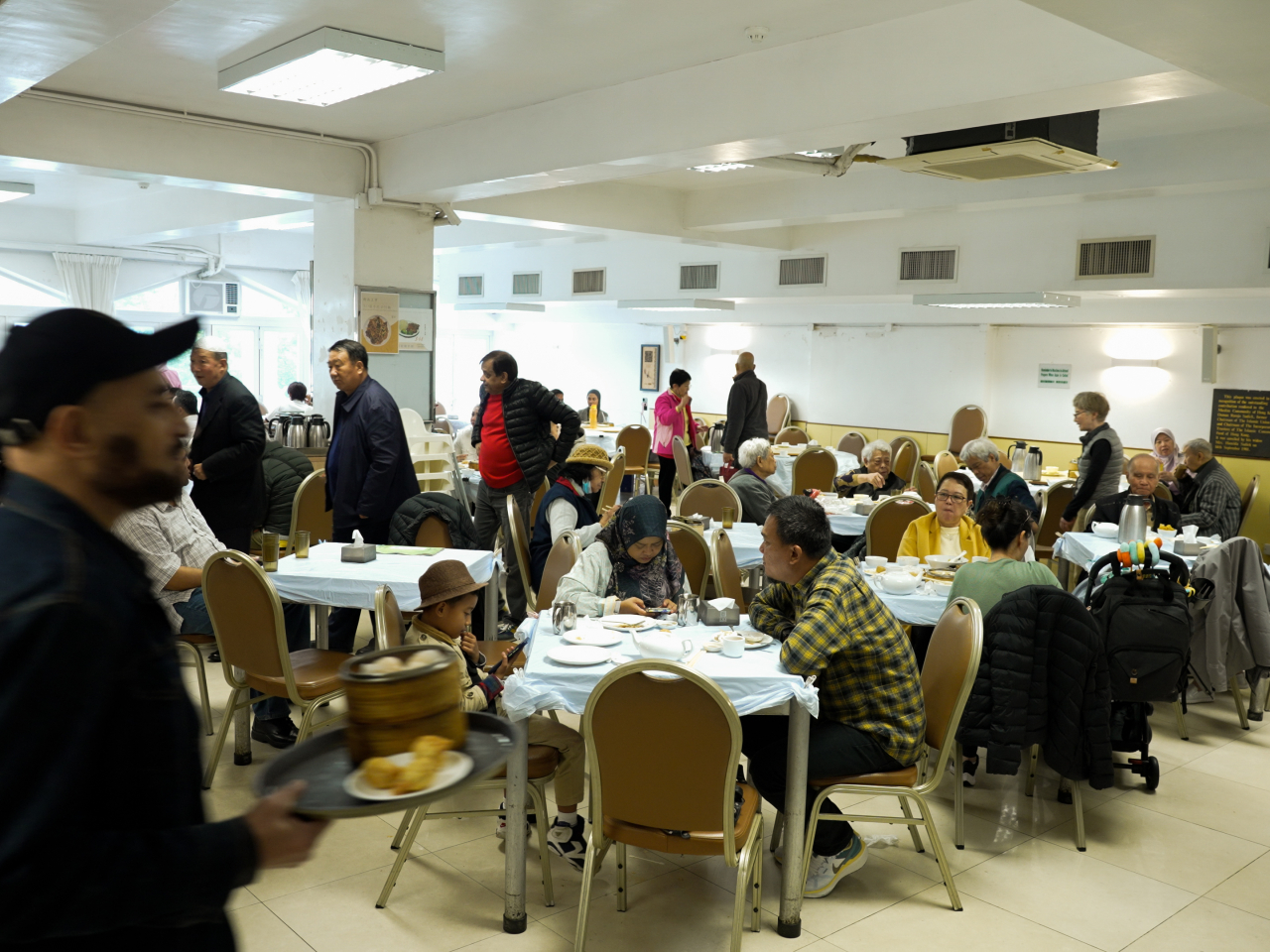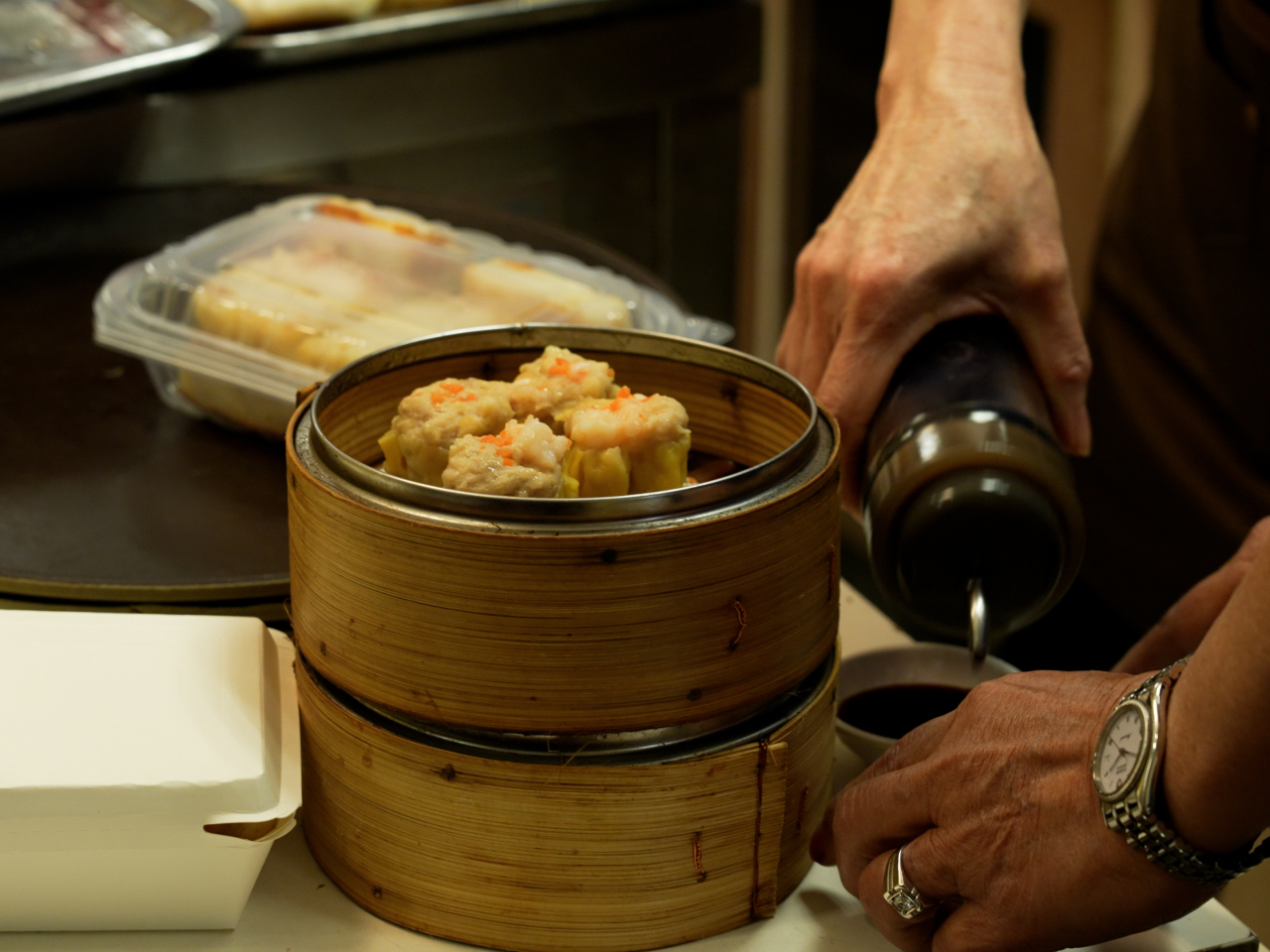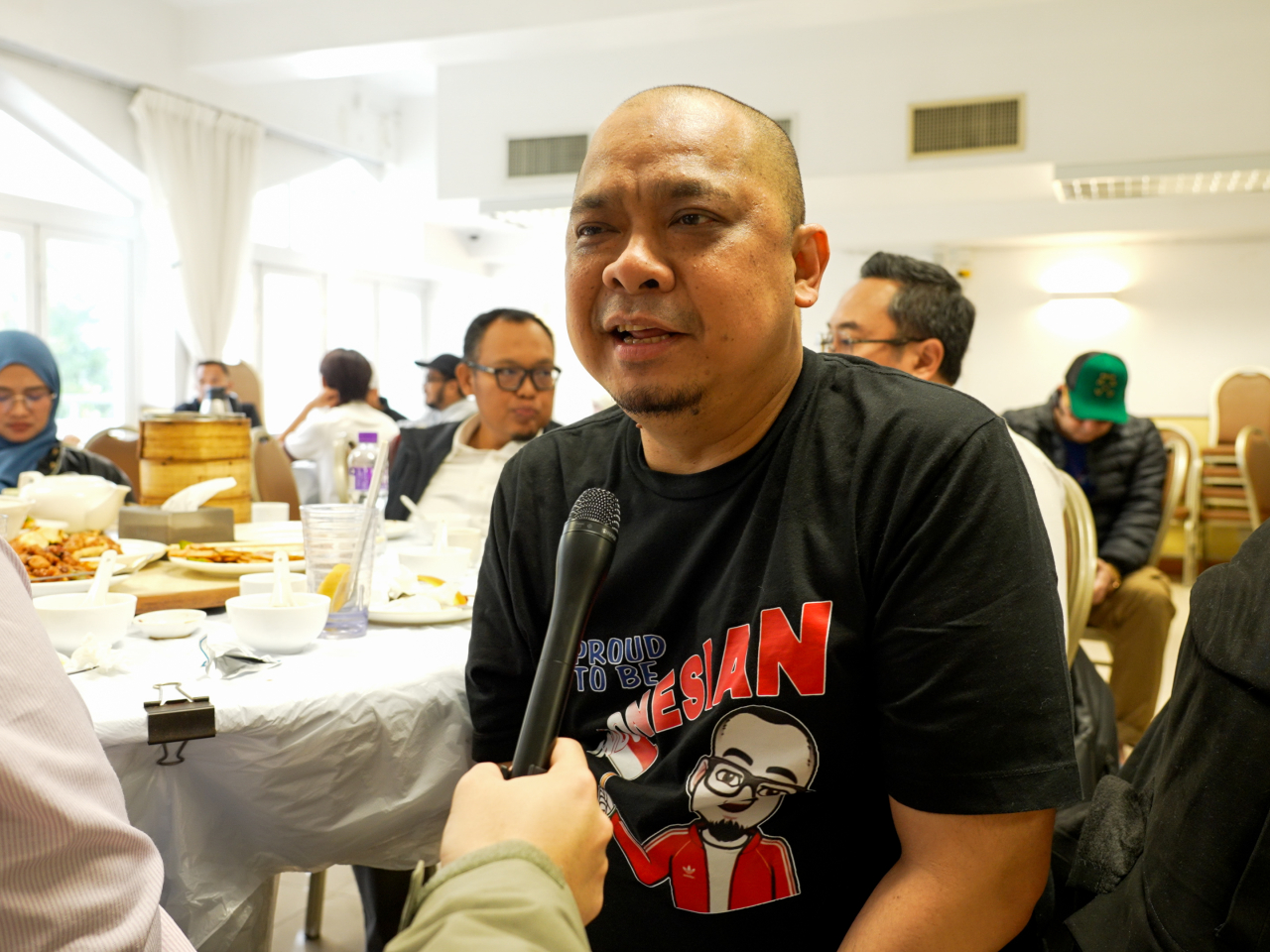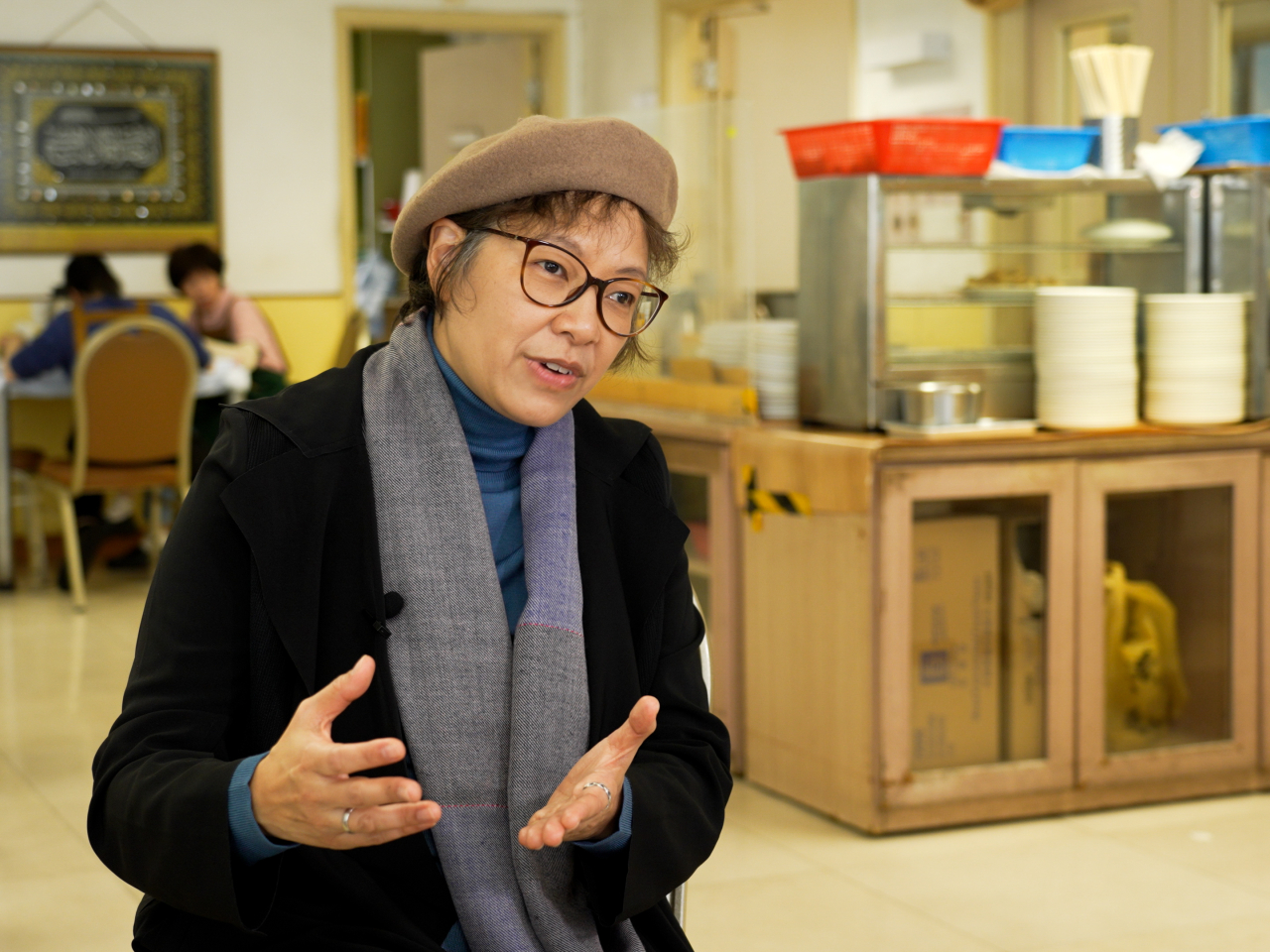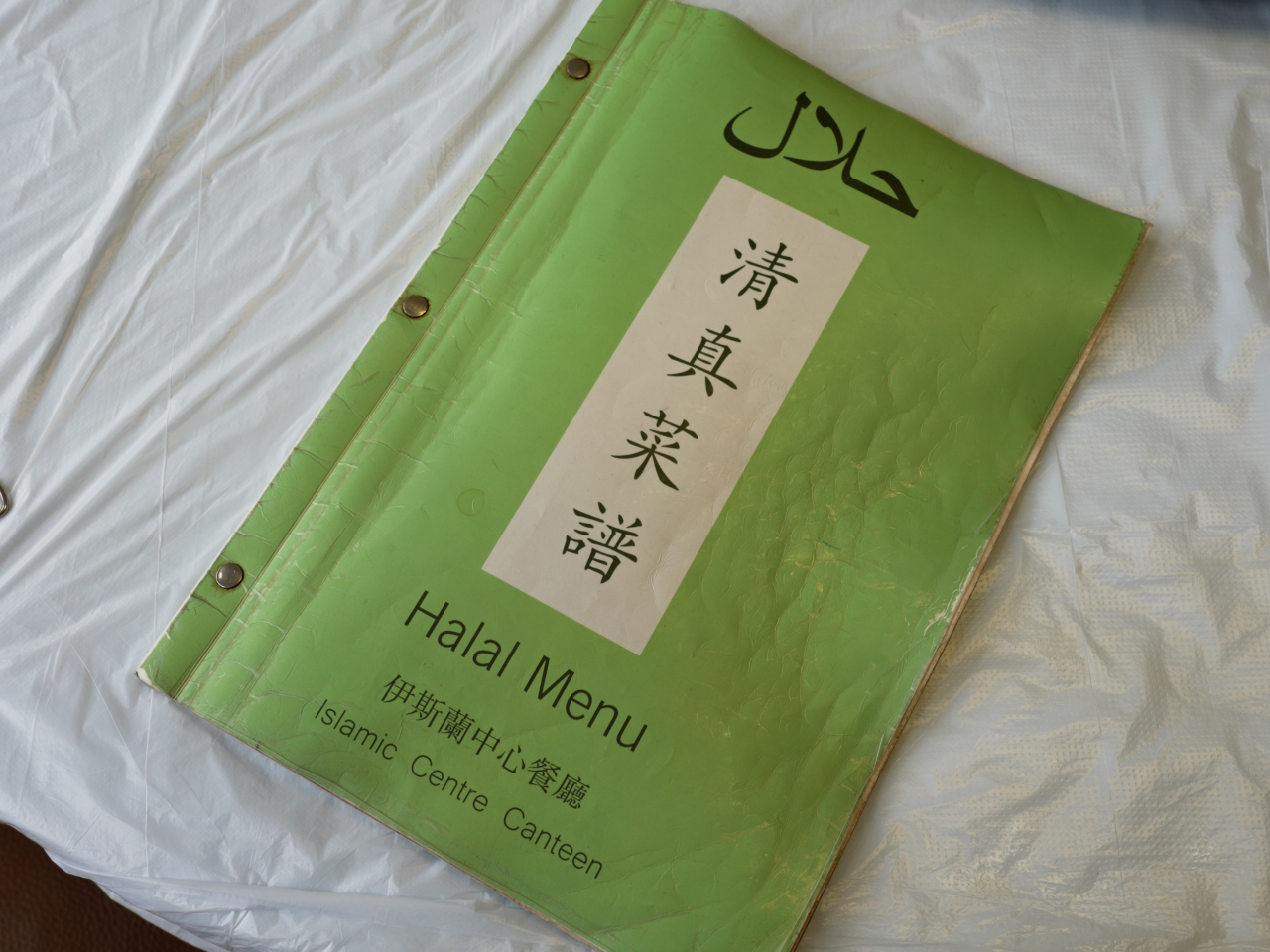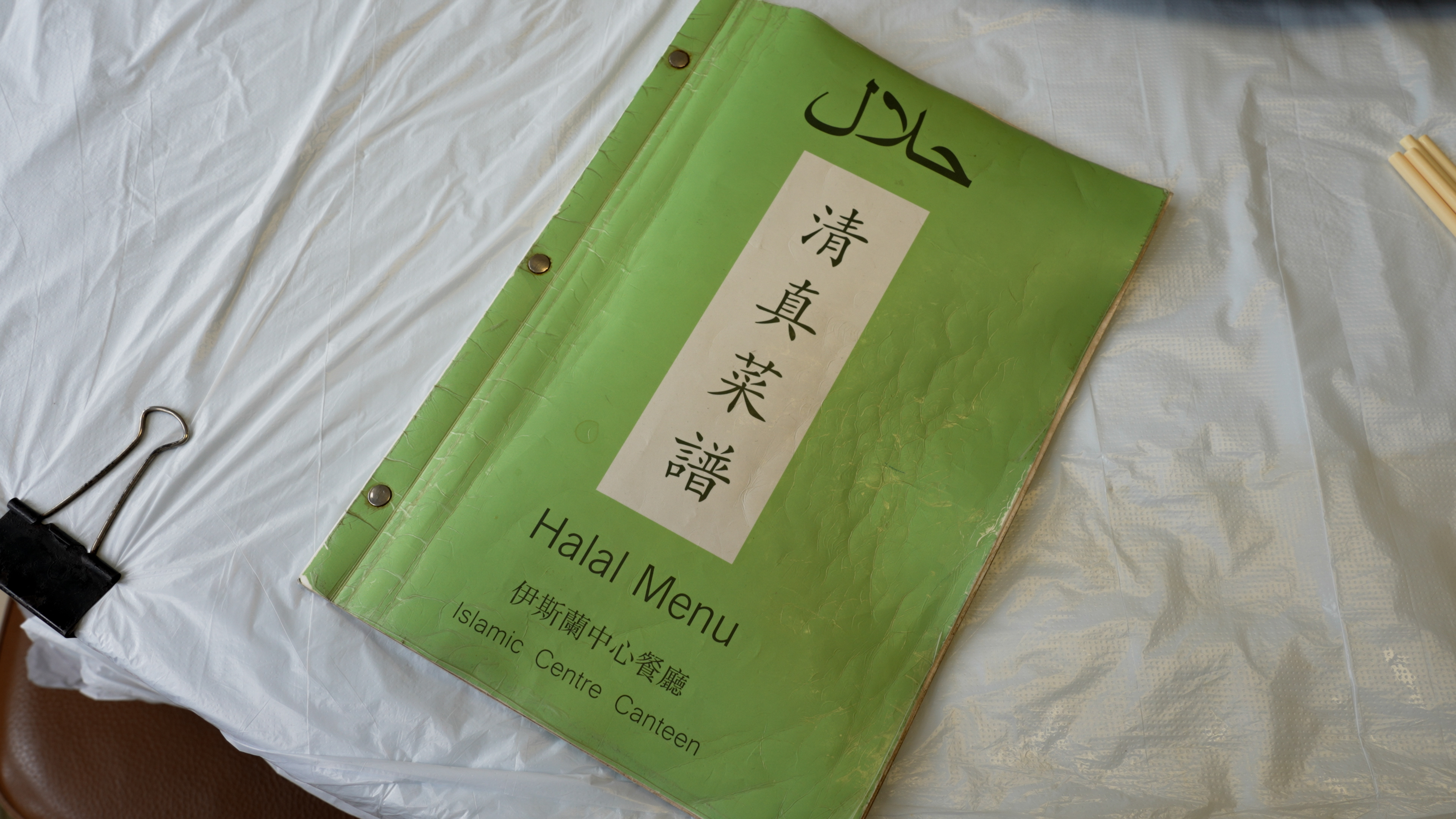That changed on a recent afternoon.
“I’ve seen it in the local shops and all, I've crossed by those shops but I’ve never actually tasted pork myself,” said Zahoor, a Pakistani resident of the city, as he took a bite of something that looked — and tasted — remarkably close.
"If it is advertised as beef char siu, then we would actually have an appetite to go and have it. If there are more options available, like Halal options, I mean why not you know? We would go for it.”
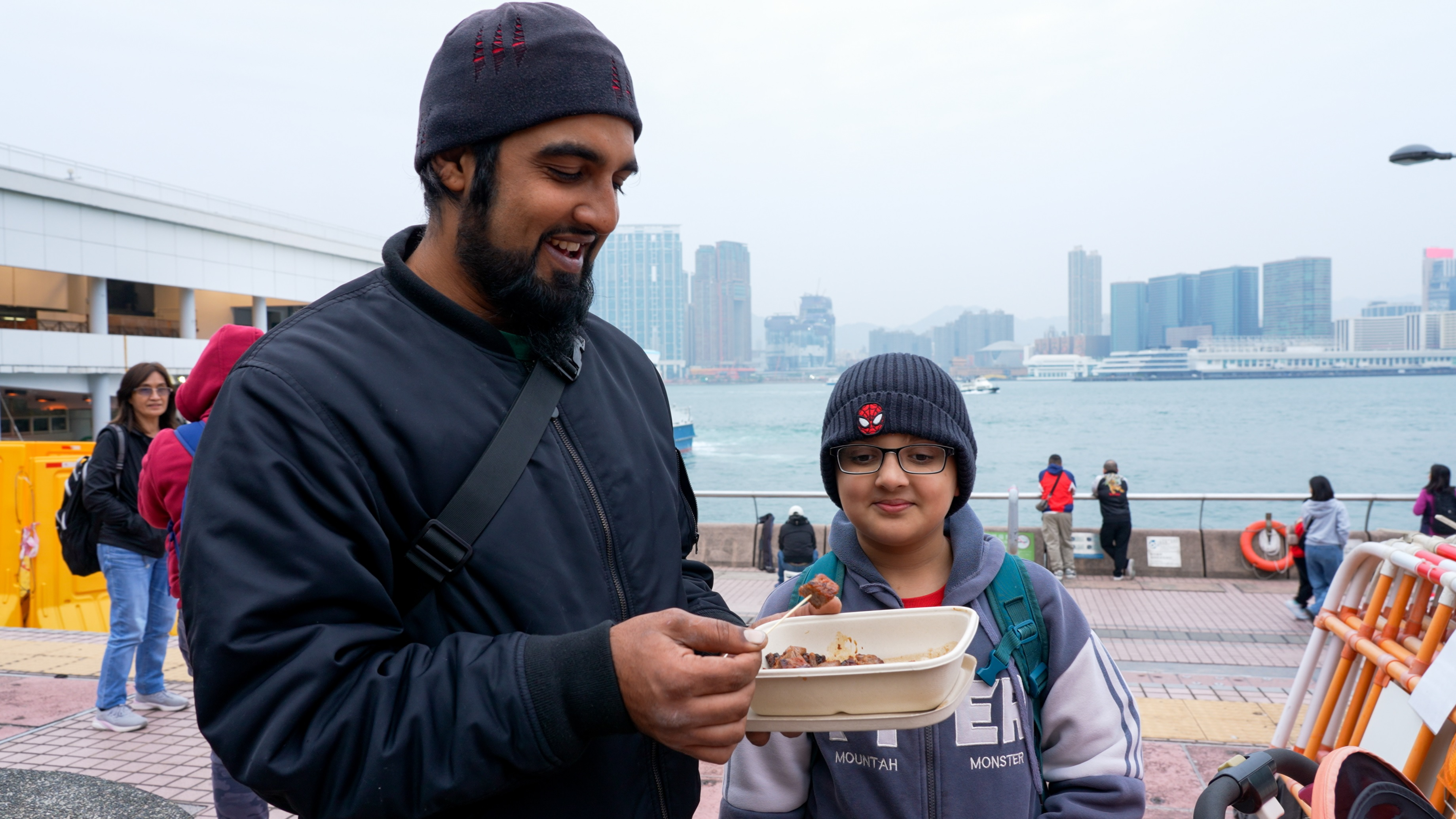
For Zahoor and many other Muslims, Hong Kong’s culinary treats can be equal parts tempting… and frustrating. Pork is a staple of Cantonese cuisine, but it’s off-limits in halal diets. That means Muslims usually miss out on Hong Kong’s full culinary experience to abide by their religious beliefs.
But the two don’t have to be mutually exclusive.
A Bold Twist on a Cantonese Classic
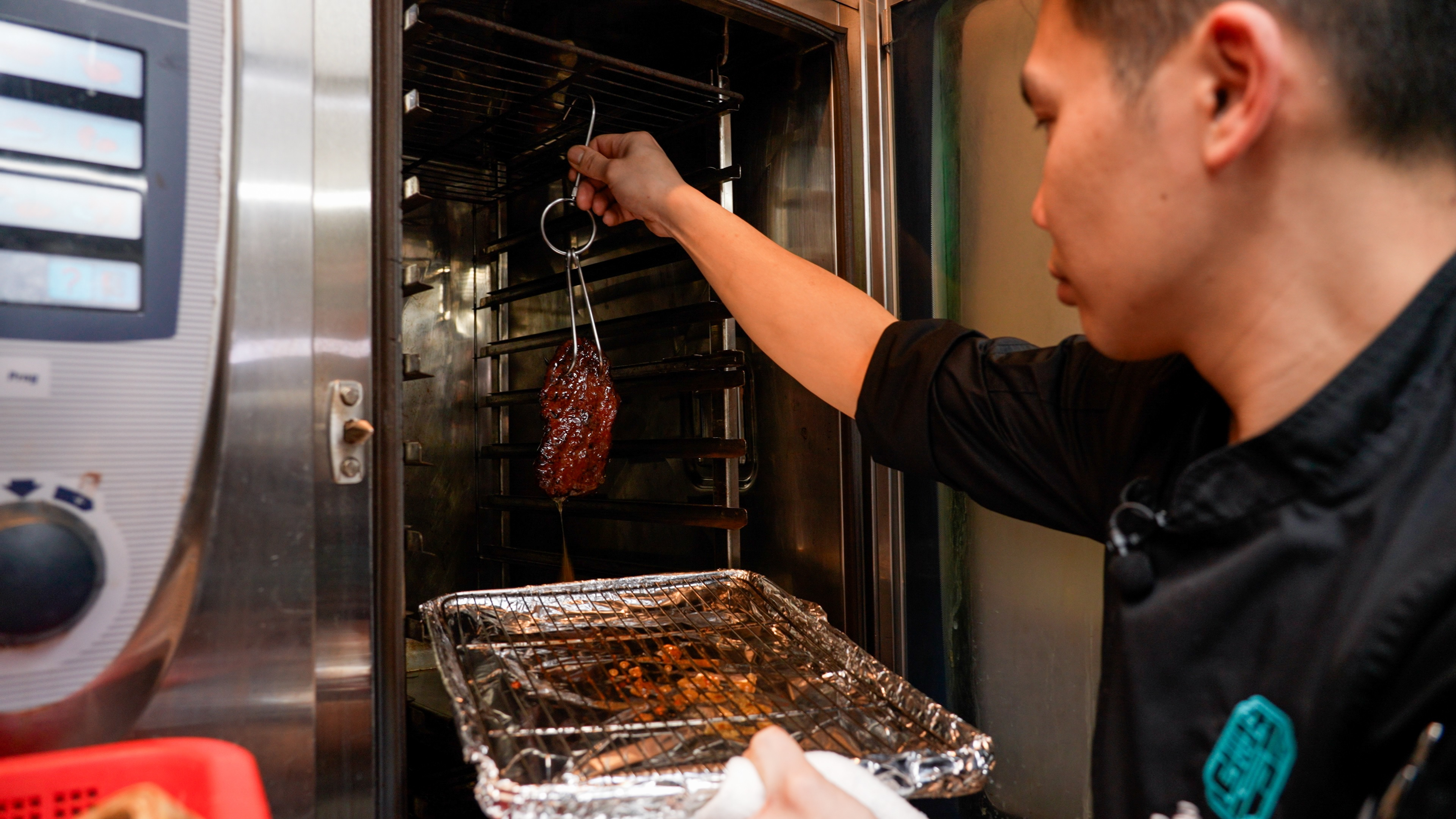
In the heart of Central, a high-end Chinese restaurant called Chinesology is one of the pioneers mixing tradition with inclusivity. The restaurant’s signature creation is a rich, sticky, halal version of char siu, made with tender beef and a sweet, smoky glaze — with no pork products at all.
But going Halal comes at a cost. The restaurant spent over HK$100,000 and six months converting part of their kitchen, sourcing halal-certified ingredients, and setting up separate utensils and cooking processes to meet the strict requirements of halal certification.
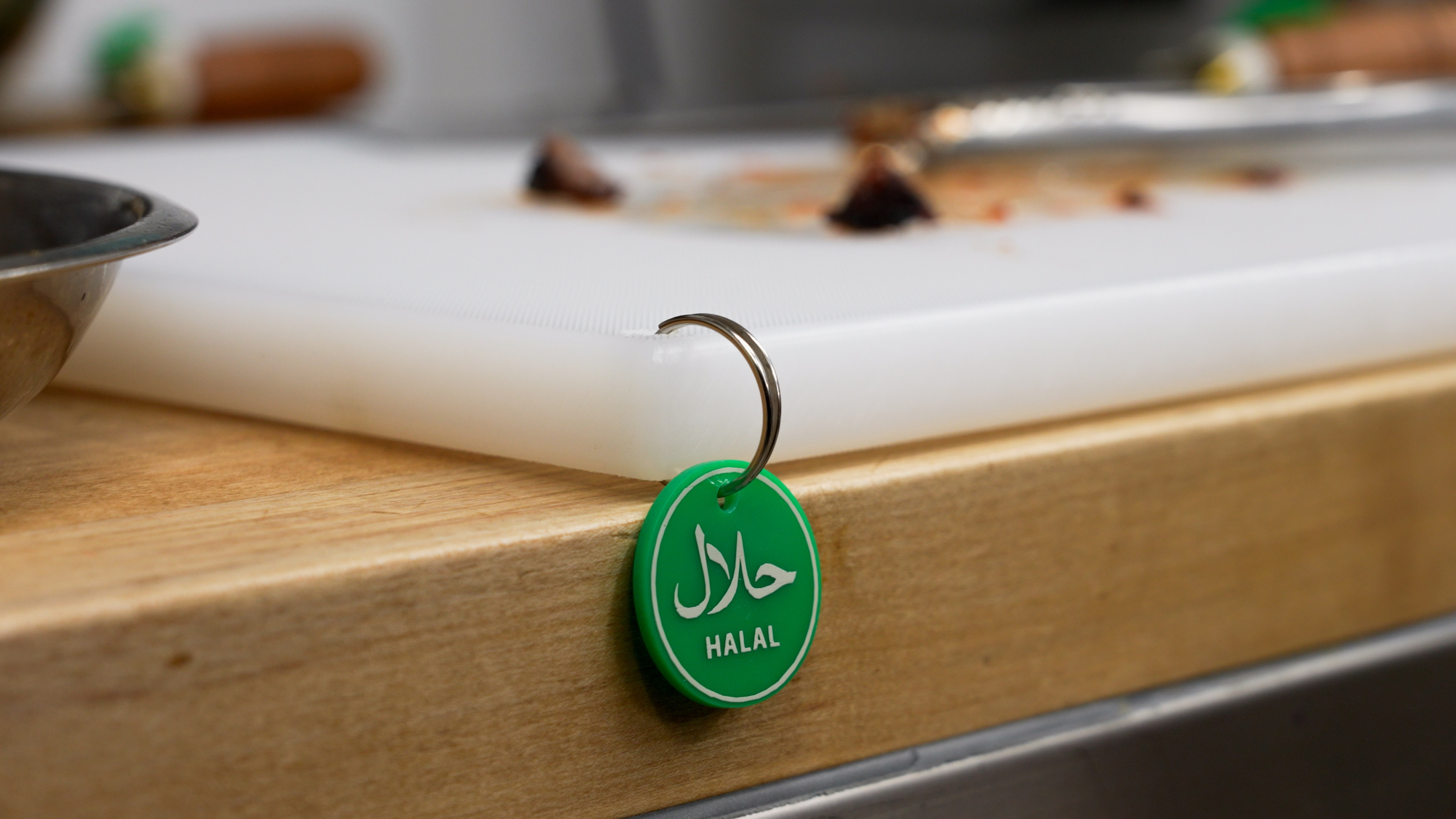
“It wasn’t easy,” said Don, the restaurant’s general manager. “During our research, we have experimented and failed many times... until we got it right.”
For Don and his team, the goal was more than just attracting new customers. “Char siu is part of our culture. We wanted to find a way to share that experience with our Muslim guests too.”
Understanding Halal
In Arabic, halal simply means “permissible.” For food, it means more than just avoiding pork and alcohol. Every ingredient — especially meat — must be certified halal, and the food must be prepared under specific conditions. There must be a clean environment with separate equipment and utensils to avoid any cross-contamination.
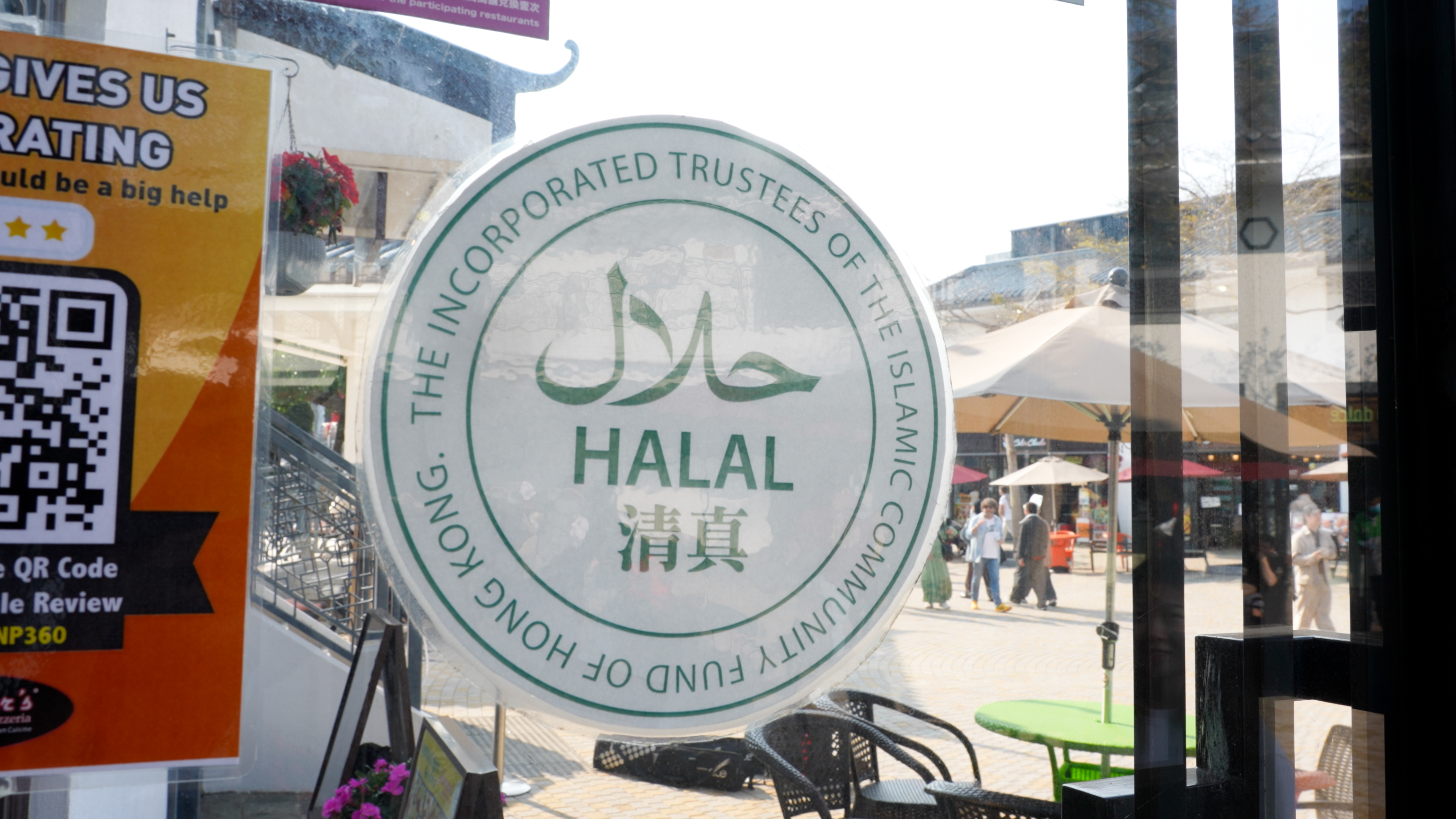
In Hong Kong, certification is overseen by the Incorporated Trustees of the Islamic Community Fund. It has developed a three-tiered system to give restaurants more flexibility. Under the most stringent tier, everything from cooking to serving must be fully halal. The second tier allows alcohol to be served to guests, but isn’t used in the kitchen, while the most relaxed tier allows restaurants to serve both halal and non-halal dishes — as long as they maintain strict separation in preparation and hygiene.
A City Catching On — Slowly but Surely
Hong Kong may be a world-class food city, but halal options have long been limited. Until early 2024, there were just around 100 halal-certified restaurants — a small number for a city with tens of thousands of eateries.
Most were hotel buffets or Indian and Middle Eastern spots — familiar and safe for Muslim diners, but largely excludes local flavours. That’s beginning to shift. Today, there are about 300 halal-certified restaurants, and the goal is to reach 500 by the end of the year. Chief Executive John Lee called for improving halal options in his policy address last year, aiming to attract more Muslim tourists from Southeast Asia and the Middle East.
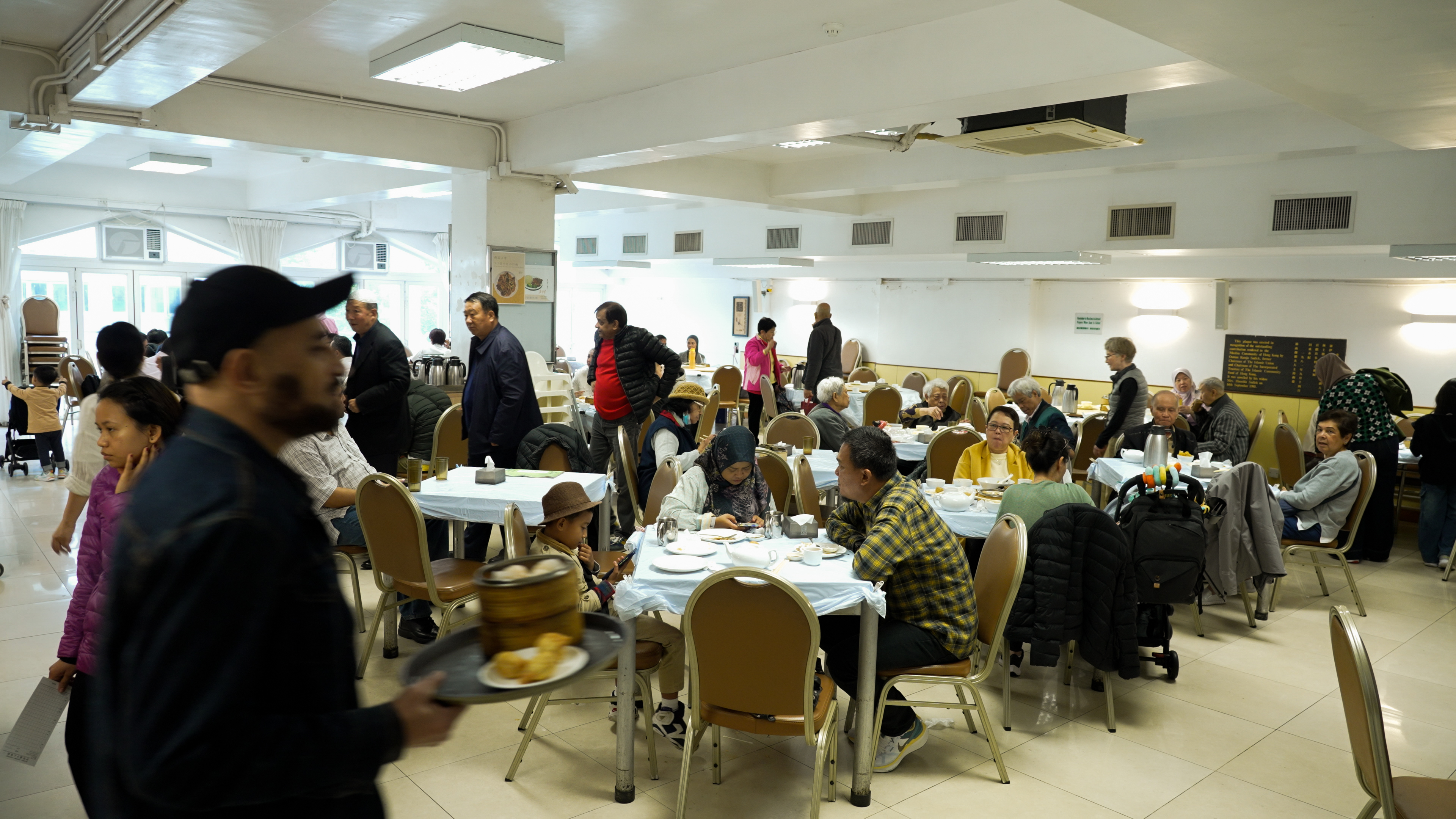
While new players are stepping in, some places have been quietly serving the Muslim community for years.
Tucked inside the Wan Chai Islamic Centre, a modest canteen has been dishing out halal dim sum for over two decades. One of its most beloved items is a halal version of siu mai, a dumpling typically made with pork.
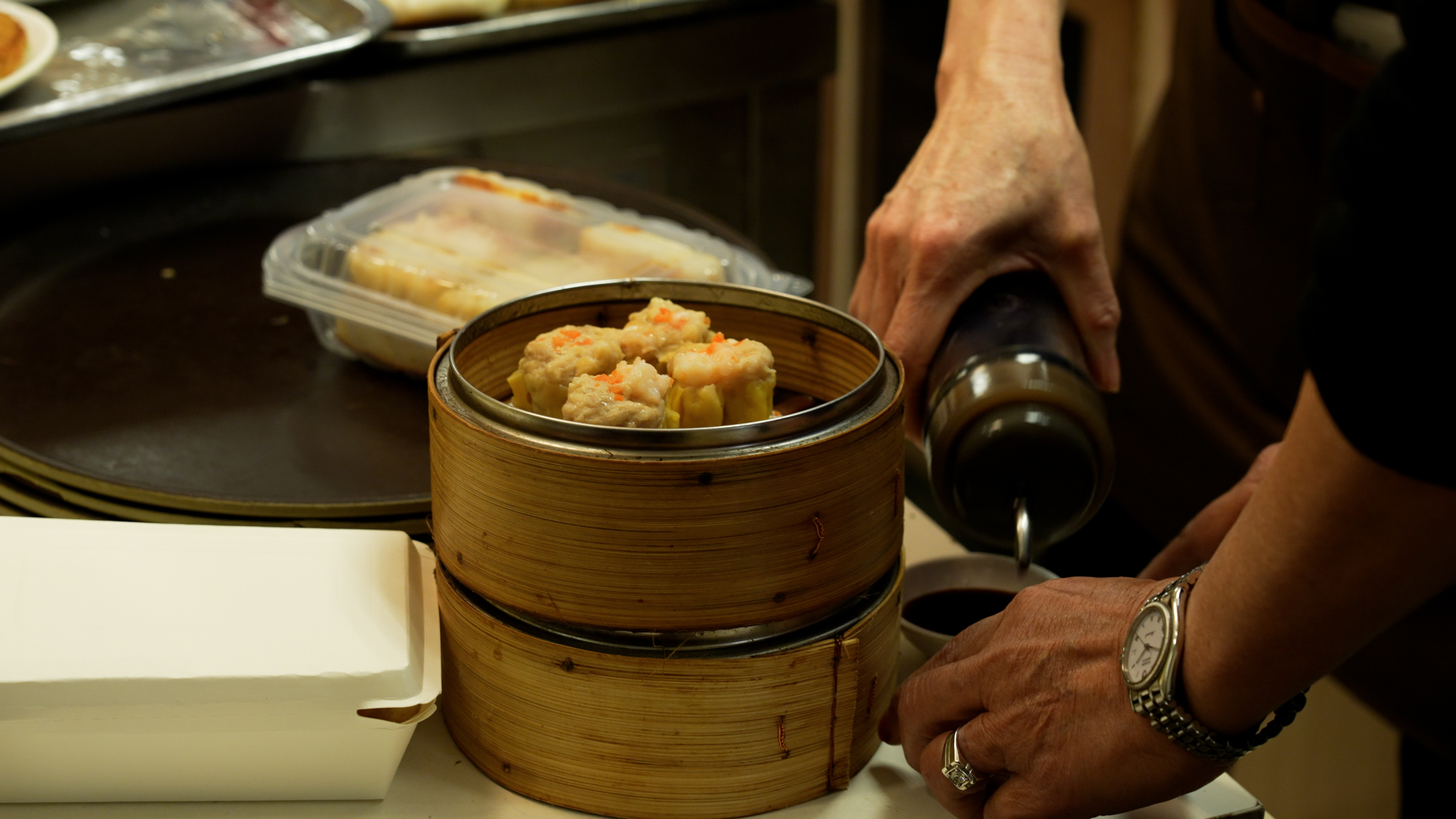
"We had to adapt a lot because everything needs to be halal, said Chef Yeung Cheuk-hung, who’s worked there for many years. "If we couldn't use one ingredient, we would think of another to replace it. We use chicken. The texture of chicken is slightly softer so we add fish meat."
For many Muslim visitors, that bite is worth coming back for.

“I know this place is the only halal dim sum spot and it’s very famous in Hong Kong,” said Irah, a tourist from Singapore. “I realised there are not many halal places here in Hong Kong,” she said.
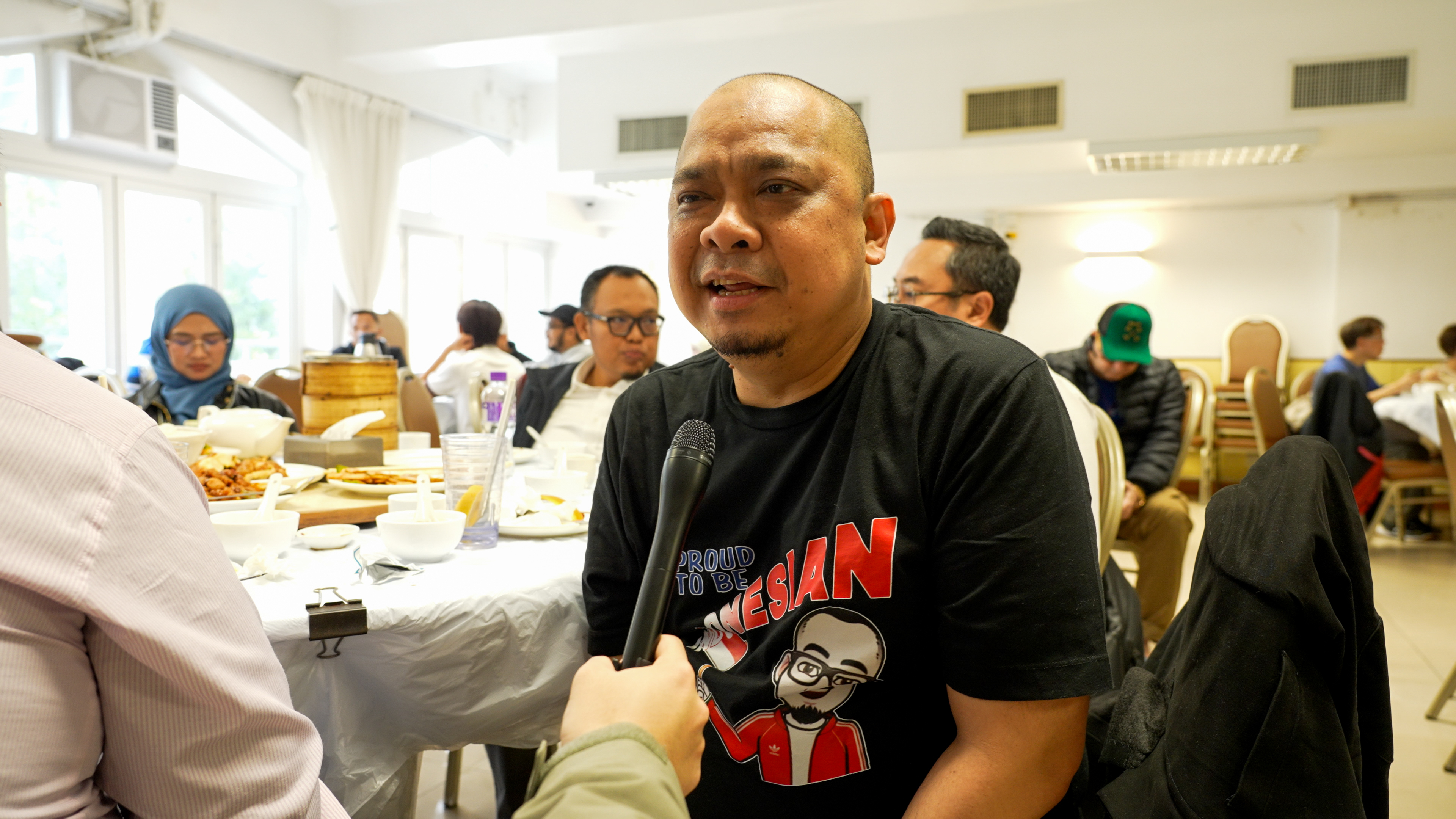
A Malaysian tourist sitting nearby smiled and added, “It's good to also have the so-called local taste with the halal certified. Maybe after this, maybe we can find another local cuisine with halal certified. Roast duck maybe, or maybe some seafood? For me, halal is my lifestyle.”
A Market Too Big to Ignore
For years, halal food in Hong Kong was seen as something niche, mostly catering to local Muslims. Many restaurant owners didn’t know the demand existed. And many Muslim tourists didn’t know where to look. That gap kept the market small — and kept businesses from seeing its potential.
But people like Sharifa Leung are working to change that. Leung runs a consultancy that helps restaurants and hotels become halal-friendly. She believes the halal market is one of Hong Kong’s biggest untapped opportunities.
